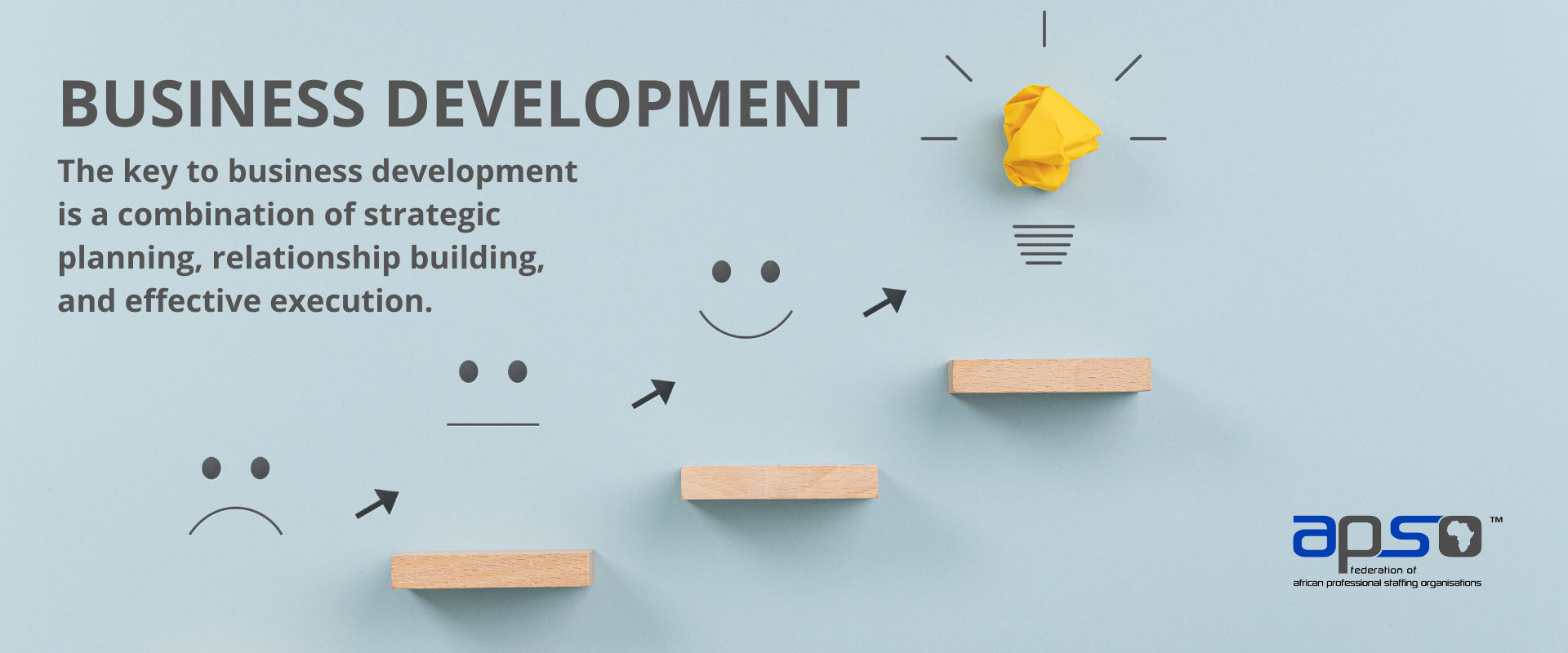The key to business development is a combination of strategic planning, relationship building, and effective execution. It involves identifying and pursuing opportunities for growth, expanding into new markets, and building partnerships that can help businesses achieve their goals.
Here are some of the key elements of successful business development:
-
Clearly defined goals and objectives: Having clear and measurable goals is essential for any business development initiative. These goals should be aligned with the overall business strategy and should be specific, attainable, relevant, and time-bound (SMART).
-
Target market research: Understanding your target market is crucial for developing effective business development strategies. This includes identifying your ideal customer, their needs and pain points, and their buying behavior.
-
Identifying and evaluating opportunities: Once you have a clear understanding of your target market, you can start to identify and evaluate potential business opportunities. This may involve researching new markets, developing new products or services, or expanding into new distribution channels.
-
Building relationships: Business development is all about building relationships. This includes networking with potential customers, partners, and influencers. It also involves cultivating strong relationships with existing customers to encourage repeat business and referrals.
-
Effective communication: Communication is essential for every aspect of business development. This includes being able to clearly articulate your value proposition, negotiate deals, and build relationships.
-
Adaptability and agility: The business landscape is constantly changing, so it's important for business development professionals to be adaptable and agile. This means being able to pivot your strategies as needed and respond to new opportunities and challenges.
-
Data-driven decision-making: Business development should be driven by data. This means tracking your results and using data to inform your decisions.
-
Continuous learning: The business world is constantly evolving, so it's important for business development professionals to be committed to continuous learning. This means staying up-to-date on industry trends, new technologies, and best practices.
By following these key principles, businesses can increase their chances of success in the ever-competitive business landscape.
Register for Business Development Training and further your skills.











